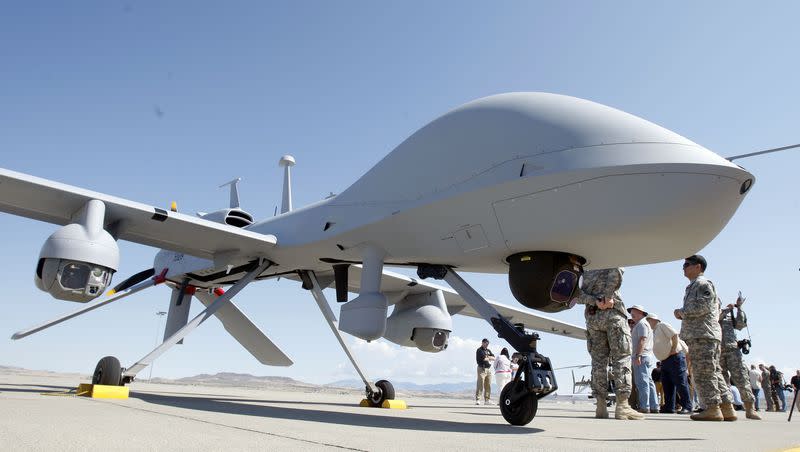Utah delegation: Fix flawed law to help update Dugway Proving Ground

Established during World War II and occupying 800,000 acres in a remote section of Tooele County, Dugway Proving Ground’s military mission is chemical and biological defense testing and evaluation, and training for first responders.
It supports 2,500 full and part-time employees, contributes nearly $267 million to Utah’s gross domestic product and carried out 163 testing events in 2021.
But the facility is hamstrung by an obscure provision in federal law that Utah’s delegation is aiming to fix.
On Friday, the delegation introduced the Chemical and Biological Defense Program Improvement Act, legislation that changes wording of a 1994 provision in the National Defense Authorization Act that precludes requests for funding by the chemical and biological defense programs in budget accounts of the military.
“Utah’s Dugway Proving Ground plays a critical role in bolstering our country’s national defense by ensuring our military is prepared for evolving chemical and biological threats,” said Sen. Mitt Romney, R-Utah. “Dugway is in dire need of improvements to facilities; yet, an obscure and outdated federal statute prohibits the Army from even requesting funding for military construction projects for chem-bio program facilities. Our legislation would remove this impediment and help Dugway to continue its vital work.”
Added Rep. Blake Moore, R-Utah: “Dugway Proving Ground has earned its place as a key installation in fulfilling the Department of Defense’s unique and challenging Chemical-Biological mission,” he said. “Dugway Proving Ground’s effectiveness and establishment during the Second World War was due to its remote location. This intentional isolation is no excuse for the consistent neglect of Dugway Proving Ground.”
He added that the continued investment and modernization of the facility is not only necessary for the quality of life of those living and working in the area, but essential to the continued safety and security of a challenging mission.
Related
Sen. Mike Lee, R-Utah, said the bill aims to cut through bureaucratic red tape impacting U.S. Army installations.
“Dugway Proving Ground (DPG) and its Chemical and Biological Defense mission are critical to U.S. readiness for the fights of the future,” he said. “Cutting bureaucratic red tape to request military construction funds alleviates an unnecessary burden and allows the hard-working men and women at Dugway to spend their time and talents on the core mission.”
With what he described as increasing boldness on the part of nations hostile to the United States, Rep. Chris Stewart, R-Utah, said it is paramount installations like Dugway receive the funds they need.
“It’s necessary that our nation is capable of defending itself in an increasingly dangerous world,” Stewart said. ”America’s adversaries are growing bolder, and Dugway Proving Ground is a jewel in our nation’s ability to counter chemical and biological threats. This bill will finally enable the facility to address its needs and subsequently better address the evolving threats to our nation.”
Related
The legislation’s sponsors also include Reps. John Curtis, R-Utah and Burgess Owens, R-Utah.

